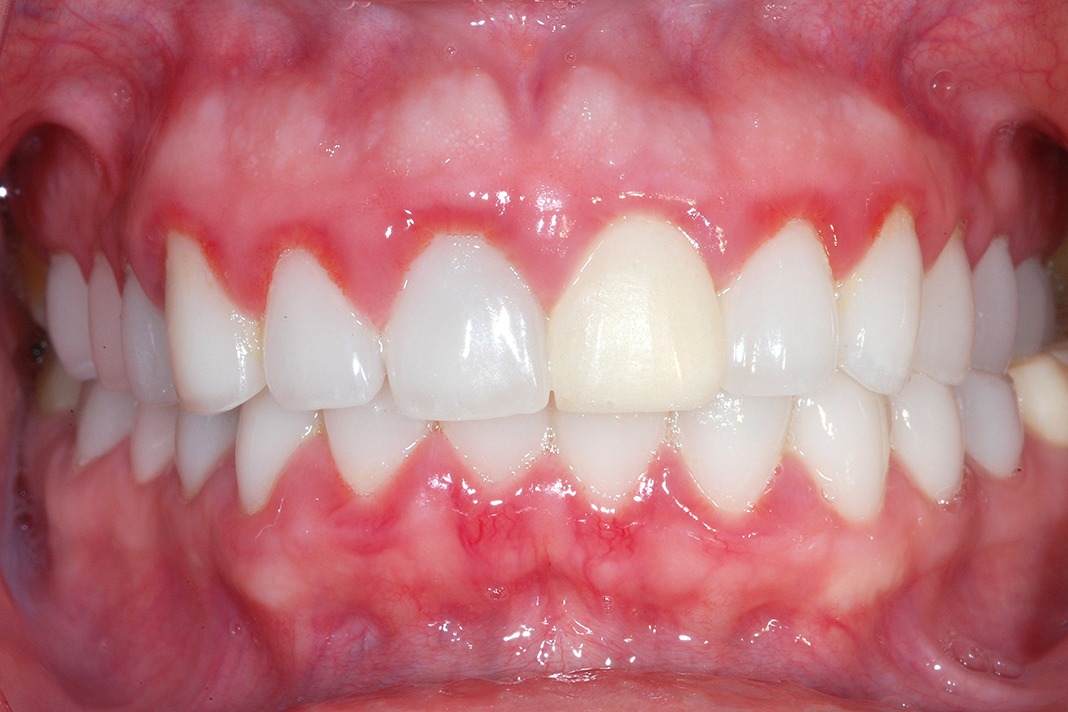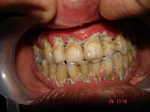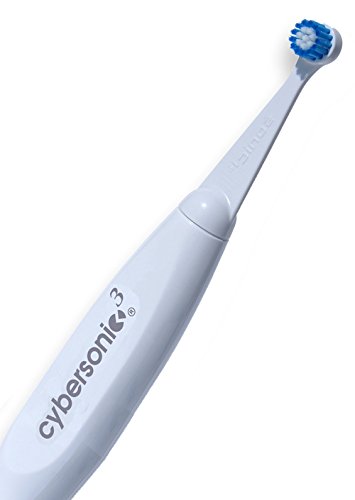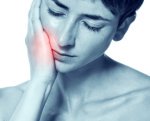Gum Disease Causes
and Treatment
Gum disease causes and treatment are basically 2 - fold. There are 2 things that affect your chances of getting gum disease.
If you DO get gum disease, there are 2 things that influence how severely it affects your gums and also your general health.
The GOOD NEWS is that YOU can do something about it!
The FIRST element of gum disease is bacteria.
Gum disease is an infection caused by bacteria in dental plaque. BUT it's not the sort of infection you catch from someone else, or from using contaminated forks at a restaurant. The bacteria that cause gum disease are already in everyone's mouth. They are "normal" bacteria. Problems occur when they breed out of control.
The SECOND element of gum disease is how your body reacts to the infection.
How your body reacts to the infection is influenced by several genetic factors;
- Your genetic response -how your genes are programmed to respond.
- Whether you smoke, and how much.
- Hormones
- Medications you may be taking
- Diet or nutrition deficiency.

Gum Disease Causes and Treatment
BUT it's important to realize that these 5 factors do NOT give you gum disease on their own. The First factor is dental plaque. If there is NO plaque on your teeth, then there are no bacteria, and so gum disease cannot get started.
The other factors only come into play IF bacterial plaque builds up on your teeth and gum inflammation starts.
The problem arises when plaque bacteria get a chance to thrive and grow in the tiny spaces between your teeth and just under the gum edges.
These bacteria build up on your teeth in a sticky film we call "plaque".
The bacteria in plaque feed off the carbohydrates from food you eat, and slowly release small amounts of toxins. If this sticky film of plaque is not removed, it builds up where the gum meets the tooth. This plaque film is REALLY sticky!
 a LOT of plaque, causing gum disease!
a LOT of plaque, causing gum disease!Gum Disease Causes and Treatment
How do the Five factors influence your chances of getting gum disease?
1. Your own "genetic response" is probably the most important factor. Some people seem to have an exaggerated reaction to low levels of plaque on their teeth. Their gums are red, and bleed when they brush their teeth, even though there isn't much plaque.
On the other hand, some people seem to be "resistant" to gum disease, even though they do not clean their teeth well, and they have significant levels of plaque on their teeth.
There is no obvious rhyme or reason to this, and it's down to your genes whether you are resistant to getting gum disease or whether you are prone to getting gum inflammation with only low levels of plaque. Most people lie somewhere in the middle!
This is known as the "host response" to infection.
AGAIN, if there's NO plaque on your teeth, then your genetic reaction has no effect.
2. Smoking. This can be confusing. Smoking on its own will not give you gum disease, but if you DO develop gum disease, then smoking will affect the progression of your disease.
One of the main effects that smoking has, over a period of time, is to narrow small blood capillaries in your gums. This means that the blood circulation is less than normal, and so your normal immune reaction to infection is also reduced.
This has 2 effects on your gum disease;
- First, your resistance to the infection is reduced. This means that the bacteria in the plaque are not being attacked by your immune cells, and the gum disease can progress more quickly than it would do otherwise.
- Second, the reduced blood circulation "masks" the true extent of the gum disease, because your gums do not bleed when you brush. You think everything is OK. But it's not.
Gum Disease Causes and Treatment
3. Hormones. During pregnancy and also during the normal monthly cycle, hormone levels rise and fall. But particularly during pregnancy, the hormones involved can make your gums much more sensitive to the bacterial infection of your gums, making the gums swell, become red, and bleed easily, even with low plaque levels.
It is as if you are temporarily extra-sensitive to any plaque at all.
4. Medications. It is possible that medications you are taking will have an effect on how your gums react to plaque bacteria.
5. Nutrition and diet. If you are missing certain vitamins in your diet, it can affect your reaction to gum disease. The best known example is probably scurvy,which is caused by a lack of vitamin C. Again, the gums become very sensitive to even low levels of plaque on the teeth, and become red, puffy and bleed easily.
How does the dental plaque bacteria affect your gums?
Over time, the toxins from the plaque bacteria start to irritate the gum tissues. It's a bit like having a splinter in your finger. Gradually the tissues get red and swell up.
This redness and swelling are signs of inflammation. Your body is trying to get rid of the irritant. Whether it's dental plaque or a splinter in your finger.
Your body is trying to tell you there's something wrong!
If you ignore all the warning signs, your gums will gradually shrink, your teeth will start to become loose, and eventually you will start to lose your teeth one by one.
READ MORE at gum disease symptoms HERE.
BUT it's not just your teeth and gums that will suffer as a result of gum disease. The bacteria and resulting inflammation involved in gum disease can cause several other problems. Read more about these complications at my pages on;
Gum Disease Causes and Treatment
The first step in gum disease treatment?
A good toothbrush.
You are allowing gum disease to get started and to get worse because you are missing areas of plaque on your teeth when brushing.
BUT DON'T WORRY - I CAN SHOW YOU WHAT TO DO!
First, you have to realize and accept that the way you are cleaning your teeth now ISN'T WORKING. If I had a nickel for every patient who told me they brush their teeth 3 times a day, I could fund a NASA mission to Mars. Just about EVERYBODY tells me how often they clean their teeth.
This is SO important that I'm going to repeat it;
First, you have to realize and accept that the way you are cleaning your teeth now ISN'T WORKING. If I had a nickel for every patient who told me they brush their teeth 3 times a day, I could fund a NASA mission to Mars. Just about EVERYBODY tells me how often they clean their teeth.
The problem is, no matter how OFTEN they brush, they still aren't getting all the plaque OFF their teeth.
It's a bit like washing your car. You may wash it 3 times a week, but if you're not washing it thoroughly each time, it's NEVER really clean! It just goes through various degrees of "dirty".
Same with your teeth.
So what's the solution to the problem?
In simple terms, you have to get into the habit of cleaning your teeth IN SUCH A WAY that you are getting the plaque off, ALSO from in between the teeth AND under the gum edges.
Have a look at this page on how to fight gum disease . That page is the MOST IMPORTANT PAGE ON THIS WEBSITE, and it will help you to deal with gum disease causes!
Just to get you on the right track, I can make a recommendation for a toothbrush. One of the best for getting plaque off your teeth is the Cybersonic 3. It doesn't cost a lot, and it is very efficient without being aggressive.
I strongly recommend the Cybersonic 3 sonic toothbrush. I think it has the best performance of any brush I've tested, and you can get it at a great price at Amazon. Take a look at my page Best Sonic Toothbrush.
I do NOT receive any commission from Cybersonic - I just think it's the best brush. You can also look at my pages about alternative brushes like the Oral B Pulsonic Slim in Europe.
An extra cleaning method when you have gum disease is to use an Oral irrigator with a cap full of "TheraBreath Oral Rinse" added to the water in the water tank. If you use the fine "Pocket Pal" tips, you can clean effectively under the gum edges where the plaque can escape from tooth brushing.
The Perio Rinse will release oxygen under the gum, killing the plaque bacteria. I HIGHLY recommend the Oral Rinse from TheraBreath.
The next step is to floss in between your teeth and gently under the gum edges with a good quality floss - read more at my floss page HERE.
Remember to check out my top recommended electric toothbrush, which has the best performance and a great price at Amazon - the Cybersonic 3 brush.
To recap, the only way to deal with gum disease is to get the dental plaque off your teeth each and every day. So many people seem to spend so much effort, time and money on unproven mad-cap alternative remedies, when it would be much more beneficial (and cheaper) to simply spend that time on cleaning their teeth properly.
With some time and patience, you will be able to get your gum problems under control. I tell you exactly what to do HERE.
I hope this page about gum disease causes and treatment has been helpful - please Contact Me directly if you have any questions about this - it's THAT important!




